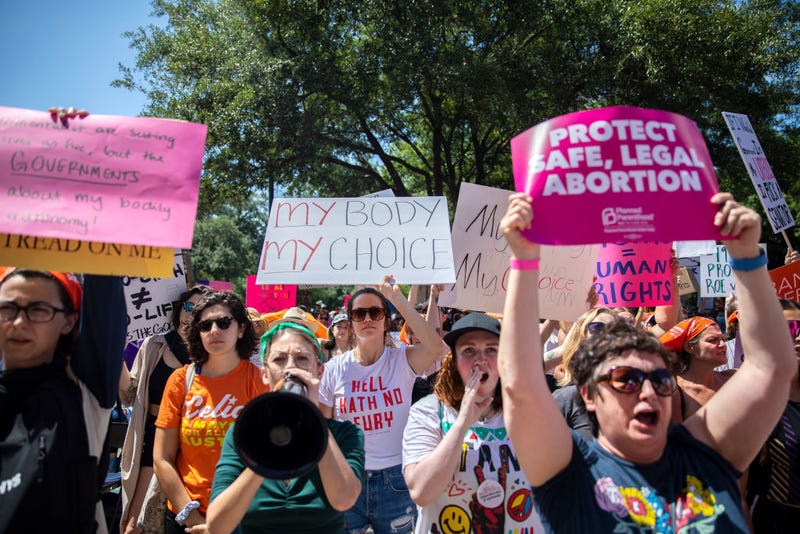
Five women are suing the state of Texas after being denied abortions despite grave risks to their lives or their fetuses.
The suit was filed on behalf of the five women and two doctors by the Center for Reproductive Rights.
The suit reads that the women "have been denied necessary and potentially life-saving obstetrical care because medical professionals throughout the state fear liability under Texas's abortion bans."
"We're talking about people who are in medical emergencies, who need urgent medical care and whose physicians are too scared to provide that care because of the state's laws and because of the state's failure to provide any clarification around what its law means," said Molly Duane, the senior staff attorney for the center, told NPR.
While Texas' near-total abortion ban allows limited exceptions when a physician determines there is risk of "substantial" harm to the mother or if the fetus has a fatal diagnosis, The New York Times reports that many doctors are scared to provide the procedure because the law carries the potential for prison sentences of up to 99 years, $100,000 fines and the loss of medical licenses.
Four of the women women eventually left Texas to have the procedure in other states; the fifth developed a life-threatening infection that left her in the ICU after doctors finally performed an abortion.
The 91-page complaint describes the women -- Amanda Zurawski, Lauren Miller, Lauren Hall, Anna Zargarian and Ashley Brandy -- as being elated over their pregnancies. Those feelings turned to devastation and fear when the women discovered their pregnancies were not viable -- two had no skulls, and two others were threatening the lives of their twins, The Times reported.
"Amanda was forced to wait until she was septic to receive abortion care, causing one of her fallopian tubes to become permanently closed. When Lauren M. learned one of her twins was not viable, she was forced to travel out of state for the abortion she needed to save her and her other baby's life, who is due in several weeks. Lauren H. received a devastating fetal diagnosis two weeks after Roe was overturned, and in the chaos that followed, she was forced to travel to Seattle for an abortion," the lawsuit explains. "Anna was forced to fly across multiple states after her water broke, risking that she would go into labor or septic shock on the journey. Ashley had to travel out of state for an abortion to save the life of one of her twins, and afterwards, fearful of documenting Ashley's abortion, her Texas physician instead described her condition as 'vanishing twin syndrome.'"
Zurawski told The Times she never thought she'd be someone who would need an abortion, let alone one to save her life.
"If anybody reads my story, I don't care where they are on the political spectrum, very few people would agree there is anything pro-life about this," she said.
The lawsuit also includes claims from two Texas doctors, Damla Karsan and Judy Levison, who are suing the state on behalf of themselves and their patients. The doctors "fear that prosecutors and politicians will target them personally and threaten the state funding of their hospitals if they provide abortion care to pregnant people with emergent medical conditions," according to the complaint.
"Widespread fear and confusion regarding the scope of Texas's abortion bans has chilled the provision of the standard of practice of obstetric care, including counseling patients about the options for genetic screening for chromosomal diagnoses or neural tube defects and the options for abortion if a lethal fetal diagnosis was found," the lawsuit states. "With the threat of losing their medical licenses, fines of hundreds of thousands of dollars, and up to 99 years in prison lingering over their heads, it is no wonder that doctors and hospitals are turning patients away -- even patients in medical emergencies."
The lawsuit does not seek to overturn the Texas ban, but it does seek clarification about when doctors can make exceptions.
The Center for Reproductive Rights said this is the first lawsuit brought by women who have had their pregnancy care directly impacted since the U.S. Supreme Court overturned Roe v. Wade.
"I don't think we've ever seen anything like this in the nation, having people with pregnancy complications having to sue the state,” said Nancy Northup, the center's president, told The Times. "It puts a face on the reality of what it means when you criminalize abortion care. It shows that abortion care is health care."


